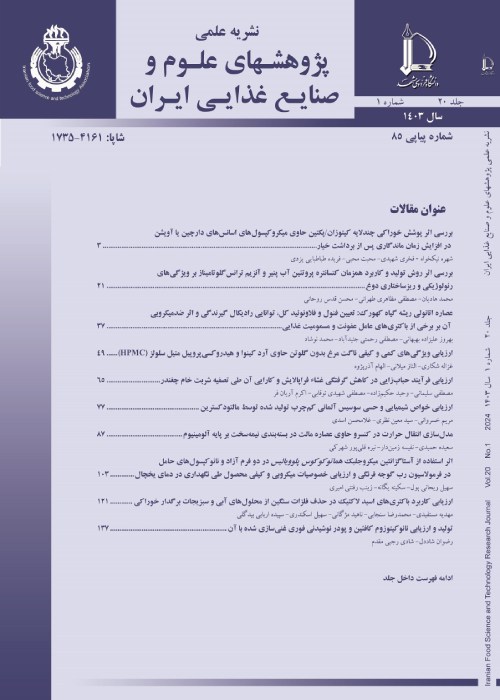The importance of solvent in the aqueous extraction of oil bodies from rapeseed
Oil plants store energy in the form of neutral lipids in the organelles called oil bodies. These organelles save triacylglycerol until seed germination. In recent years, the oil bodies have been considered as an oil/water emulsion in the pharmaceutical, food, and cosmetic industries. These organelles are also effective tool for purifying, stabilizing and delivery of biotechnology products. Aqueous extraction processing (AEP) is the most common method for oil body extraction. Despite all advantages compared to organic solvent extraction, the yield of AEP still needs to be optimized. Therefore, this study surveys the efficacy of two solvents, phosphate buffer and distilled water in the oil bodies' extraction from rapeseed.
Brassica napus L. seeds were obtained from seed and plant improvement institute, Iran. To compare the efficacy of solvents, 0.1 M phosphate buffer (pH 7.5) and distilled water were used for extraction. The ground rapeseed was suspended in the buffers in a ratio of 1:10 (w/v) and stirred for 12 hours at room temperature. This step was repeated three times. Then, the extract was centrifuged at 10,000 g for 15 minutes at 4 ° C. The floating layer was carefully removed and dissolved again in the initial solvent and the pH was adjusted to 8.5 to precipitate the deflated proteins. Finally, the cream layer was retrieved using centrifuges and one-tenth of the initial buffer volume was applied to the 9 M urea buffer (pH 7.5) for 10 minutes to separate non-specific proteins from oil bodies. The purified oil-bodies were monitored under light microscopy.
According to the microscopic and macroscopic results, the stability of oil particles and efficiency of extraction would be higher by phosphate buffer due to maintaining a constant alkaline pH during the extraction. Moreover, the presence of different salts in the phosphate buffer increases the purification yield up to twice times as a result of providing osmotic pressure and increasing solubility of membrane proteins. These results emphasize the importance of membrane proteins on the formation and stabilization of oil bodies.
- حق عضویت دریافتی صرف حمایت از نشریات عضو و نگهداری، تکمیل و توسعه مگیران میشود.
- پرداخت حق اشتراک و دانلود مقالات اجازه بازنشر آن در سایر رسانههای چاپی و دیجیتال را به کاربر نمیدهد.


